News for 03 January 2021
All the news for Sunday 3 January 2021
Ten Campo players in Spanish squad for Ireland series
Ten Club de Campo played have been named in the Spanish women’s squad to face Ireland in five test matches in January in Murcia.
They are part of a wider 34 player panel for the matches – which start on January 10 – as both countries start their run-in to the 2021 Olympics in Tokyo.
From Campo, sisters Sara and Laura Barrios, Carmen Cano, Begoña Garcia (pictured), Maria López, Alicia Magaz, Candela Meijas Zanetti, Bea Pérez Maria Ruiz and Alejandra Torres-Quevedo are all included in Adrian Lock’s extensive RedSticks selection from the Campo side who currently top their domestic league.
For Ireland, coach Sean Dancer has named a 23-player squad for their Olympic run-in which includes two uncapped players – Railway Union’s Michelle Carey and Ards’ Zara Malseed.
The panel includes Shirley McCay from EHL-qualified Pegasus while there are 16 players from the squad of 18 that earned them their ticket to Tokyo back in November 2019.
Euro Hockey League media release
Rani Rampal-led India women's hockey team leaves for Argentina for first international tour after coronavirus-induced break
The Indian team is scheduled to play four matches against the world number two Argentina side (26, 28, 30, 31 January). Before that, it will play two matches each against Argentina's junior and B sides.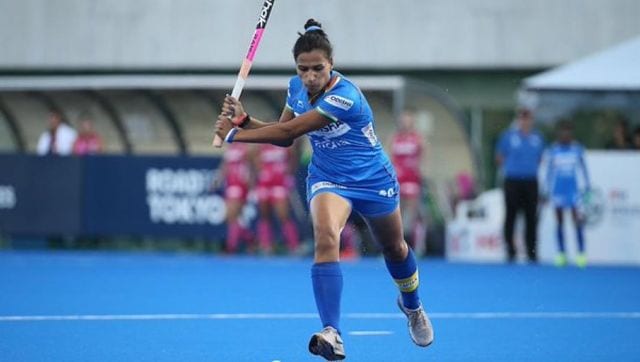
File image of India women's hockey captain Rani Rampal. Image courtesy: Hockey India
New Delhi: The Indian women's hockey team, led by Rani Rampal, on Sunday left the country for the tour of Argentina, looking to gain international match exposure after nearly a break of one year due to COVID-19 pandemic.
The Indian team was forced to train at the Sports Authority of India centre in Bengaluru for several months as international competition came to a halt due to the pandemic.
The Indian team is scheduled to play four matches against the world number two Argentina side (January 26, 28, 30, 31). Before that, it will play two matches each against Argentina's junior and B sides.
"It feels amazing to be touring again. We have worked very hard on our game in the last few months and the time has come for us to execute our skills in an international match," skipper Rani said ahead of departure.
"Playing in international matches is going to be a bit different this time, since we will be in a bio bubble, however, the team is excited to be back on the field in the best possible manner at the moment," she said.
Hockey India and the host country's national association have created a bio bubble for both the teams.
The Indian team will stay at a hotel where there will be provisions for separate rooms/halls for all the meals, team meetings and sessions.
The entire Indian contingent underwent a COVID-19 RT-PCR test 72 hours prior to their departure.
Though there is no requirement for quarantine upon arrival in Argentina, the team will still be following all safety and health measures as advised by the respective governments of India and Argentina, a release said.
India's vice captain and goalkeeper Savita thanked Hockey India and SAI for arranging the tour of Argentina.
"We desperately needed to get back into competitive mode as there's not much time left to go for the Olympics. We have been doing well in practice sessions, but an international match is always the real test for any sportsperson," said Savita.
"We are really looking forward to a great tour and hopefully, we start playing to our full potential right from the first match," she added.
Firstpost
Indian women’s hockey team leaves for Argentina tour
Hockey India and the host, National Association, have created a bio bubble in Argentina for both the Argentine women’s team and the Indian women’s team
The Indian women’s hockey team has left from Delhi’s Indira Gandhi International Airport on Sunday for Argentina. This tour will be the national side’s first one after almost a year.
Hockey India also named the 25-member Indian women’s hockey squad for the tour.
The Indian team is scheduled to play two matches against Argentina (Junior Women) on January 17 and 19, two matches against Argentina B on January 22 and 24 and four matches against Argentina on January 26, 28, 30 and 31.
Hockey India and the host, National Association, have created a bio bubble in Argentina for both the Argentine women’s team and the Indian women’s team.
The Indian women’s team will be staying in a hotel, where a provision to have separate rooms or halls for the team for all meals, team meetings, sessions have been made.
“It feels amazing to be touring again. We have worked very hard on our game in the past few months and the time has come for us to execute our skills in an international match. Playing in international matches is going to be a bit different this time, since we will be in a bio bubble, however, the team is excited to be back on the field in the best possible manner at the moment,” Indian Women’s Hockey team captain Rani said in a statement.
The entire Indian contingent underwent a COVID-19 RT-PCR Test 72 hours prior to their departure from New Delhi. Though there is no requirement of quarantine upon arrival in Argentina, the team will still be following all safety and health measures as advised by the respective governments of India and Argentina, Hockey India has said in an official release.
The Indian women’s hockey team vice captain and goalkeeper Savita thanked Hockey India and the SAI for arranging the tour of Argentina.
“We desperately needed to get back into the competitive mode as there’s not much time left to go for the Olympics. We have been doing well in practice sessions but an international match is always the real test for any sportsperson. Therefore, we would like to thank Hockey India and SAI for the efforts they have put in to arrange a tour for us. We are really looking forward to a great tour and hopefully, we start playing to our full potential right from the first match,” said Savita.
The 25-member Indian Women’s Hockey squad: Rani (Captain), Savita (Vice-Captain), Rajani Etimarpu, Bichu Devi Kharibam, Gurjit Kaur, Deep Grace Ekka, Rashmita Minz, Manpreet Kaur, Reena Khokhar, Salima Tete, Nisha, Sushila Chanu Pukhrambam, Lilima Minz, Neha Goyal, Namita Toppo, Monika, Nikki Pradhan, Vandana Katariya, Navneet Kaur, Navjot Kaur, Jyoti, Udita, Rajwinder Kaur, Lalremsiami, Sharmila Devi.
The Tribune
Tokyo Olympics still on track, insists Japan PM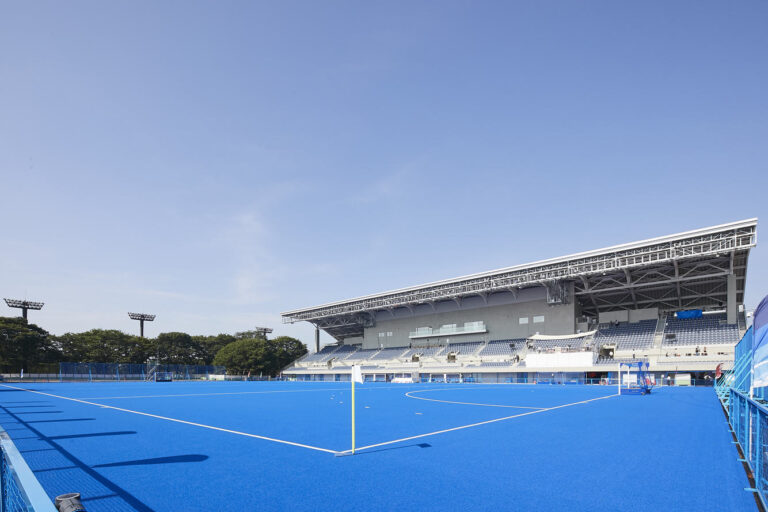
The Oi Olympic Hockey Stadium is in the waterfront area of Tokyo Bay
Hockey is still on track to have two major tournaments staged in two months after Japan’s prime minister insisted the rescheduled 2020 Olympics would still go ahead despite a surge in coronavirus cases.
EuroHockey 2021 is set to be held in Amstelveen between June 4-13 before the hockey events in Tokyo are planned to start on July 24.
Covid cases have risen sharply in Japan after Tokyo reported more than 1,000 daily infections for the first time. Yuriko Koike, the Tokyo governor, warned that the number of infections could now “explode” due to the new virus variant.
However Japanese PM Yoshihide Suga admitted the “Games will be this summer,” and would be safe and secure. He also added that the event could be a “symbol of global solidarity”.
A poll by national broadcaster NHK last month revealed that the majority of the Japanese general public opposed holding the Games in the summer.
The poll showed 63 per cent of respondents said the Olympics should be postponed again or cancelled. Only 27 per cent said they should take place.
Japan is slated to begin vaccinating the public in February at the earliest. March is when 10,000 runners are set to start carrying the Olympic torch to every part of the country.
SIGN UP for The Hockey Paper’s returning newsletter: Promotions, exclusives and our best coverage
When the New Year was ushered in at the World Cup
BY ERROL D’CRUZ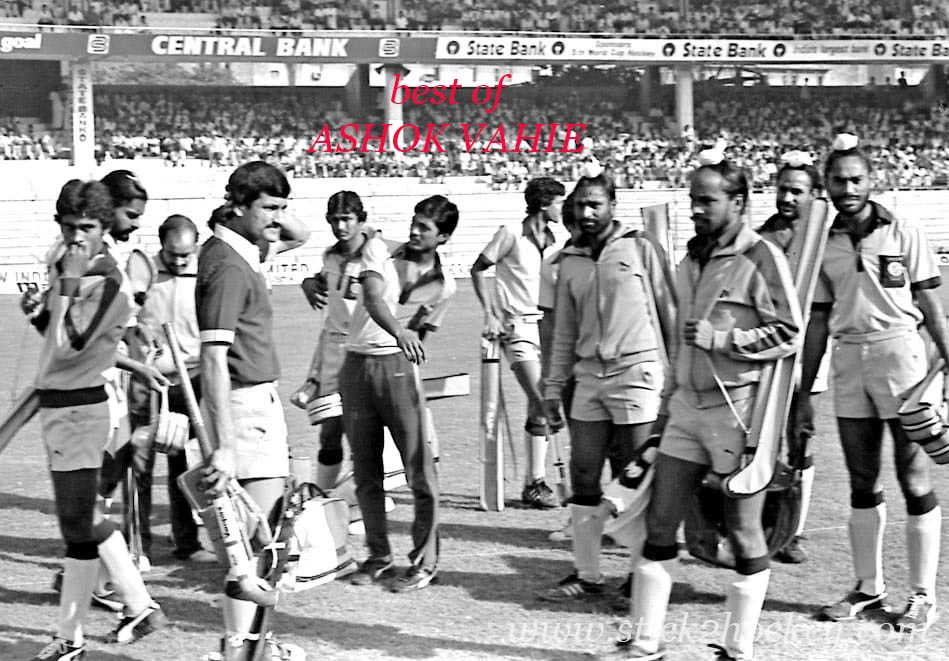
New Year’s Day 1982 was special for the hockey community. It arrived during the 5th World Cup in Bombay (now Mumbai) which began on December 29, 1981. The unusual starting date of a World championship meant that some teams travelled to Mumbai with their Christmas dinners not quite digested.
Played in “winter”, the climate was still oppressive to European teams. The heat and humidity took their toll and one English player named Wilkinson collapsed from dehydration.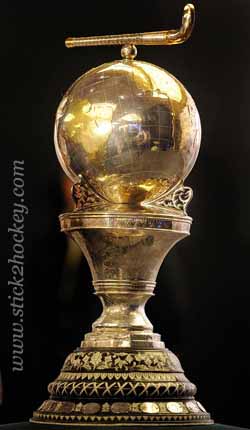
In the final on January 12, Pakistan debunked the theory that the event would be open while cruising to their third title. The Green Shirts beat West Germany 3-1 in the final to finish with an all-win record and an imposing goal record of 35-4 from seven matches. All Pakistan’s wins were secured by margins of two goals or more and one against New Zealand by 12-3.
Hassan Sardar, the centre-forward par excellence, was the spearhead of the triumph. He was backed up by the legendary Samiullah, Kallemulah, Hanif Khan, Mansoor Jr with captain Akhtar Rasool, the immaculate centre-half. Rasool duly lifted the magnificent trophy donated by his country itself for the inaugural 1971 World Cup in Barcelona where Pakistan won their first of three titles at the time (a record four in all).
SALIENT FEATURES OF THE 1981-82 MUMBAI WORLD CUP:
The last global major tournament on natural grass: Mumbai was the last global major tournament on natural grass. The next World Cup was held at Willesden, England, on an artificial pitch. The Olympics had already made the switch. The matches in Mumbai were played at the BHA and Wankhede stadiums. With international hockey committed to switching to artificial pitches as good natural grass pitches were tough to come by, the fifth World Cup proved that a firm, true natural grass pitch could produce high quality and entertaining hockey.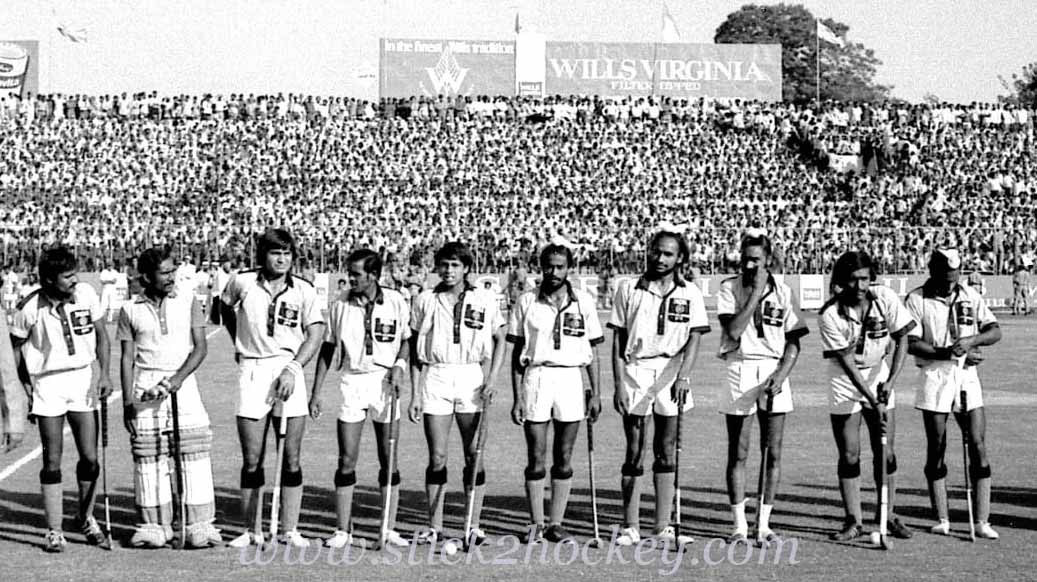
Crowd assembled in Mumbai to see India at the World Cup, but the team failed them. Photo: Ashok Vahie
The first ever World Cup in India:
India were named hosts for the 1975 World Cup with Mumbai as the venue. But administrative chaos within the ranks of the IHF forced the event to be moved to Kuala Lumpur which, by a pleasant quirk, India won for their only title till this day. Since Mumbai, India have hosted the World Cup twice more – New Delhi 2010 and Bhubaneswar 2018.
Expectations belied by empty stands:
One expected packed stadia, and that unlucky fans would be locked out. None of that happened. Instead there were wide empty spaces in the stands especially at the main venue, the Wankhede stadium, an international cricket stadium (capacity of 36,000). The India-Malaysia opener was attended by just 6,000 and the final drew some 30,000 but the crowd was jam-packed in the East and West Stands with North and South (behind the goals) largely vacant. India’s remaining matches at the Wankhede drew some 20,000 each. The BHA stadium (capacity 15,000) hosted the India vs England match. India treated a sell-out crowd to a 4-2 victory.
Extensive TV and media coverage:
The state run Doordarshan Television station covered all matches live but poor quality black-and-white coverage didn’t quite enhance hockey’s image as a TV sport. Nor did a lack of atmosphere for matches that did not involve India and Pakistan. Six hours of air-time each day wouldn’t have drawn too many eyeballs but did ire from viewers deprived of alternative entertainment. Full marks, though, to the Fourth Estate which splashed hockey on its pages.
Cricket confirmed undisputed No. 1 sport in India: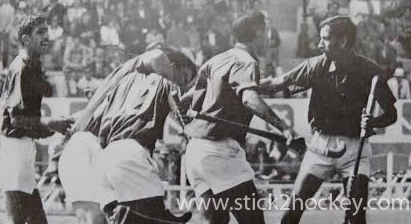
The Mumbai World Cup was squeezed into the calendar and dates were found between the second and fourth cricket Tests between England and India with the third Test running from January 1-6. The Wankhede stadium, was packed to capacity on each day as India beat England to go one-up in the six-Test series. During the World Cup, a few die-hards watched teams train but a stones throw away, an English College team playing a cricket match against a local side at the Azad Maidan drew hundreds of fans. The theory that the Indian triumph in the 1983 Cricket World Cup caused a shift of fan loyalty from hockey to cricket is clearly a misconception.
Spate of rule changes: On September 1, 1981, the FIH Rules Board effected several rule changes which were used for the first time at a major tournament. The bully-off was abolished and in came the back push from the centre spot. Hits-in replaced the fastidious push-ins. Also, the long corner was modified to a free-hit from the corner flag. The changes helped speed up the game and reduce stoppages.
Goals galore:
As many as 216 goals were scored at the Mumbai World Cup at an average of 5.14 per match. The most for a World Cup. India’s Rajinder Singh topped the scorers’ list with 12 goals – all with crisp penalty corner strikes.
Heartbreak for India:
India won the 1980 Moscow Olympic gold but drew cynicism over the denuded field owing to the US-led Olympic boycott. Triumphant captain at Moscow V. Baskaran was controversially dropped and Surjit Singh made captain. The team impressed on the European tour.
Playing The Netherlands on New Year’s day, India led 2-0 inside 20 minutes but lost 3-4. After wins over Malaysia (6-2), the Soviet Union (7-2) and England (4-2), the hosts lost 1-2 to Australia with a late winner. A draw would qualified India for the semifinals after the Soviet Union drew 2-2 with fancied Netherlands in the adjoining BHA stadium. Eventually, India finished fifth after beating New Zealand 3-2 and the Soviet Union 5-1. It meant that India were the first hosts not to achieve its best World Cup finish.
FINAL STANDINGS: 1. Pakistan 2. West Germany 3. Australia 4. The Netherlands 5. India 6. Soviet Union 7. New Zealand 8. Poland 9. England 10. Malaysia 11. Spain 12. Argentina.
Stick2Hockey.com